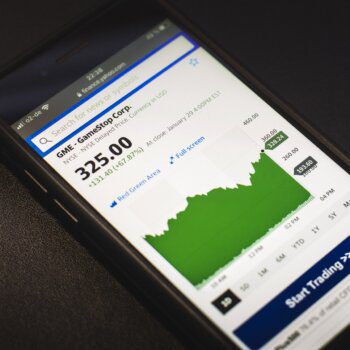2014 has come and gone already and now we head into a new year at an exciting time for many new disruptive technologies and buzzwords floating around the startup scene like wearables, IoT (‘Internet of Things’) and importantly, ‘Blockchain’ tech. Bitcoin had a great year in 2014 solidifying itself on the world stage but perhaps the biggest debut this year was applications that harness the technology that Bitcoin is built upon ‘Blockchain technology’. Emerging as an exciting field for development Blockchain based tech can be the enabler for disruption outside of just the finance space from legal contracts, home security, weather monitoring to cloud storage that makes you money all can harness a blockchain in various ways.
‘Blockchain’ refers to the technology behind Cryptocurrencies like Bitcoin. It is essentially a cryptographically secure, decentralised, shared ledger of data that is constantly kept up to date from other computers running the same software in the network or ‘nodes’. In Bitcoin the blockchain is used as a transaction ledger, all transactions are recorded and traceable via the ledger providing a transparent, auditable history of all transactions to have ever taken place. Seems pretty straight forward, but the technology can be extended a lot further than this….
A record in a ledger is essentially ‘data’. Think of what your accountant does in recording money going in vs money going out and applying some rules to this data to see what is your profit/loss or taxable income etc. This ‘data’ could be anything it could be garbage bins in a city communicating with each other and letting the city authority know which ones need emptying, optimizing workflows and saving time and money. It could be two people agreeing on a contract and each signing it with their unique signature (keys) on the blockchain that document can be saved to the ledger and cannot be changed and is viewable only by both parties with the appropriate keys. We can even take this example one step further where programs on the blockchain can execute code autonomously without human input or interaction, Skynet here we come!
The contract could enforce payments via the blockchain via a ‘smart contract’. Let’s say two people are betting on the result of a football game, Person A and Person B. Both people send bitcoin to the neutral smart contract (a program living on the internet), both parties agree on the terms and when the football game finishes the smart contract can determine the result by looking up online who won and send the bitcoin to winner. We could also use a smart contract in car loan repayments too. To access your car you could hold the ‘keys’ on your smartphone if you did not pay the loan repayments the smart contract could ‘lock’ your keys and deny you access to the car until you repay the loan. Both of these examples a neutral arbitrator is involved who makes a decision based on inputs and outputs to some code which requires no human intervention, lives online in cyberspace not on one ‘server’ but ‘everywhere’ and can massively boost efficiency and productivity by freeing humans from doing mundane tasks. This can be a great enabler for the majority of the world who cannot afford a Lawyer or any legal representation or perhaps live in a country with a poor justice system. A smart contract
is an easy way to transparently ensure a contractual obligation is fulfilled and it cannot be tampered with once signed. Investing across borders in many countries that have underdeveloped justice systems just got a whole lot easier massively eliminating any chances of being defrauded and ensuring the other party will fulfil their end of the bargain without need for human involvement.
Crowdfunding is another area that can benefit from blockchain technology. A company itself can exist on a blockchain and take inputs (investment, revenue, commissions etc) and outputs (rent paid, wages, paying invoices etc) that can enable entrepreneurs an easier and global way to get funded, automate payment of costs and disburse equity, providing investors with an easy way to ensure a they receive accurate accounting and fair equity anywhere in the world. A company could even issue it’s own cryptocurrency and users who buy that are effectively buying a share in the company this is already happening with projects like Counterparty, Storj and Gems who have raised millions this way. Along with smart contracts, who needs a slow and cumbersome companies registry?
Some of these nascent technologies are with us already and some are still under development. The openness of the technology is inspiring creators all of the world to solve problems and contribute to making a freer, wealthier and more peaceful society, perhaps this is the best legacy from the mysterious creator of it all, Satoshi Nakamoto. Suffice to say if 2014 was the year of Bitcoin, then 2015 is shaping up as the year of Blockchain.





























